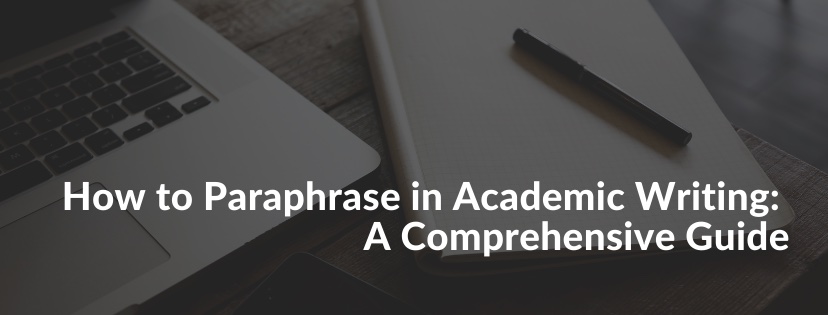In drafting a manuscript, thesis, or dissertation, the discussion section is usually one of the last to be written. Notwithstanding, it is arguably the most important section in a manuscript. Due to its relevance, it is usually the most challenging to write, as it requires top-level expertise. This article seeks to lay bare 5 helpful considerations to make when writing a sound discussion section.

This article discusses 5 helpful considerations for a discussion section in academic writing. To give you an opportunity to practice proofreading, we have left a few spelling, punctuation, or grammatical errors in the text. See if you can spot them! If you spot the errors correctly, you will be entitled to a 10% discount.
In drafting a manuscript, thesis, or dissertation, the discussion section is usually one of the last to be written. Notwithstanding, it is arguably the most important section in a manuscript. Due to its relevance, it is usually the most challenging to write, as it requires top-level expertise. According to the American Association of Plant Biologists, when readers skip sections to read the discussion section, they easily understand the results and their implications. As a result, editors at Best Edit & Proof, in providing editing services to their clients, ensure that the discussion section appeals to journals and dissertation committees, without ignoring the reader’s ability to understand the paper’s message. Thus, this article seeks to lay bare 5 helpful considerations to make when writing a sound discussion section.
Before setting out to conduct a study, researchers design and plan a study with objective(s) in mind. This objective informs how the study is conducted. For example, no researcher would just commence by administering questionnaires or setting up laboratory equipment without an objective. It also informs the questions and necessary procedures to undertake. To write a well-conveyed discussion section in academic papers, the author must review and ascertain whether the conducted study addressed that objective. It takes understanding of the objective to assess the achievement of the objective clearly. Based on the assessment, the author finds the direction of his discussion. The comprehension of this objective is critical to crafting a focused discussion section in scholarly writing.

The data from the study are evidence to portray the achievement of the objective. Since the data presented in tables, graphs, and charts may not out-rightly convey a message to the reader, the author bears the responsibility to accurately and lucidly interpret the data presented in the results section. In certain instances, authors regurgitate previously reported results in the discussion section. For example, “As observed in Table 2, 70% and 20% of females and males, respectively, sought medical attention a few hours after experiencing pain”. In discussing findings in the discussion section, they should be described in context with their implications. Thus, from the cited example, the author must indicate that if 70% of females seek medical attention promptly, they more likely will detect underlying pathological conditions at an early stage than males.
In a well-written discussion section, the author compares his/her findings with those of other studies reported in literature. This aspect is different from a literature review in the sense that the author has data at hand to compare, as against the general overview made about a study’s objective prior to the investigation. In comparing, the author is able to pronounce the authenticity of his/her results, especially when similar procedures were used in other studies. Any differences in findings can be explained using the different peculiarities between the author’s study and others. If this consideration is carefully made and implemented, the author may likely find evidence-based explanations for his/her findings. Even for novel findings, an author may still find relevant literature that formed the rudiments of the present study to discuss the progress, contribution, and novel dimension of the study.

After discussing the results, the author, as part of his goal, must propose the impact of the study’s findings on the problem that informed the idea of the study. The reader will be better served if the author describes a roadmap for solving the problem based on the findings. Depending on the nature of the problem, an author may propose solutions to affect policy, behavioral change, or conventional practice. Only after making this contribution will a discussion section expose readers to the specific and general impacts of a study.
In academic research, authors usually use definite frameworks to examine study problems. Therefore, authors must discuss studies’ strengths and limitations, as well as the scope to which any conclusions made would apply. This is good practice that informs future studies that may seek to enlarge scope, displace limitations, and maximize strengths.
Research is meaningless without a great discussion; therefore, make these considerations when writing the discussion section. Consult Best Edit & Proof’s doctorally qualified editors and proofreaders for help with writing a discussion section that suits best publication practice. The editing service goes beyond the check for compliance to grammar, syntax, and writing rules. It rather extends to the check for the general coherence of the arguments made in an academic paper.

Best Edit & Proof expert editors aim to provide your manuscripts with proper scholarly and academic tone and style. They will significantly improve the chances of your having your research manuscript accepted for publishing. They provide subject-area proofreading and editing services in several fields categorized under various disciplines. With our extensive knowledge and expertise, we will help you find the right tone and style for your manuscript.
If you need our subject-area editors to format your manuscripts, giving you the fundamental rules for formatting your manuscripts as described in your guidelines, such as APA, MLA, or Chicago/Turabian styles, then contact us. At Best Edit & Proof, our proofreaders and editors edit every type of academic paper. We have a user-friendly website and a simplified ordering process.
If you would like our subject-area editors and language experts to work on your project for the improvement of its academic tone and style, then please visit the order page. It's easy! It takes only a few minutes to submit your manuscript and to complete the process. Click here to see how it works.
We have flat-rate pricing based on our type of service (editing or proofreading), word count, and turnaround time. Enter your word count or copy and paste your document into our pricing calculator to get an instant quote.
If you need support for academic editing and proofreading, contact us. You can also e-mail us or use the 24/7 live chat module to get direct support. Our doctorally qualified editors will polish and fine-tune your projects.
Follow us on Twitter, LinkedIn, Facebook, Instagram, and Medium.
For more posts, click here.
How to Determine Variability in a Dataset
14.10.2023
How to Determine Central Tendency
19.02.2023
How to Specify Study Variables in Research Papers?
14.01.2023
Population vs Sample | Sampling Methods for a Dissertation
14.01.2023
How to Ensure the Quality of Academic Writing in a Thesis and Dissertation?
04.12.2022
How to Avoid Anthropomorphism in Your Dissertation?
04.11.2022
How to Write a Research Methodology Section for a Dissertation and Thesis
07.08.2022
How to Write a Theoretical Framework for a Dissertation and Thesis?
05.08.2022
How to Write Literature Review for a Dissertation and Thesis
02.08.2022
How to Write a Dissertation and Thesis Introduction
31.07.2022

Academic writing is a particular type of nonfiction writing, which is used in various academic works, such as reports of university research, proposals of new theories by the researchers, or papers released by scholars analyzing the culture of their fields. This article provides nine practical tips for academic writing that a writer must remember to improve his/her writing style.
Continue Reading
Writing an academic paper is not similar to other forms of writing. It requires patience, knowledge, and the use of proper sentence construction. An academic paper should be informative, polished, and well structured. As a student or researcher, you should learn about bad habits and not repeat them in your academic writing. In this article, we discuss 6 bad habits to avoid in academic writing.
Continue Reading
Being a proofreading and editing service provider, we often find researchers making common citation mistakes in their research papers. Well, making mistakes is normal, but repeating the same mistakes is not accepted. Recognizing the gravity of the situation, we here bring the list of common errors students and researchers make while citing sources.
Continue Reading
Understanding the common types of plagiarism will help us to comprehend the scope of the question and answer the question of ‘‘what is plagiarism’’. Some common examples of plagiarism are copying texts or ideas without referencing, incorrect referencing, without referring to someone else's sentence structure even if you change words.
Continue Reading
Paraphrasing is a regular exercise in academic writing. High school students, college students, and research scholars are required to paraphrase to demonstrate their understanding of a text. However, there are cases when, due to ineffective paraphrasing, instances of plagiarism dot an academic manuscript. Therefore, academic writers must correctly understand the fundamentals of academic paraphrasing and apply them to their writings to avoid any occurrence of any academic offense. This article will peruse the anatomy of academic paraphrasing. In addition, it will examine how paraphrasing is different from summarization and suggest ways to paraphrase effectively.
Continue Reading
Research proposals are fundamental to any research endeavor. Therefore, every scholar contemplating research should know how to write a research proposal that can relay the intent behind a research project with utmost clarity and confidence. This article sheds light on the essential aspects of writing a research proposal that can bear the intended fruits. Also, it outlines the purpose of all the components of a research proposal and puts forward some holistic writing guidelines for the same.
Continue Reading
Writing a thesis or dissertation is considered the final phase of your Ph.D. journey. You must cover three to five years of study and research into your thesis. A doctoral thesis or dissertation is a long essay of knowledge and research on a specific niche that poses interesting questions and answers with your reasoning. Ph.D. candidates should carefully choose the study topic according to their expertise. This article explains how to write an impeccable Ph.D. thesis for outstanding results in 6 helpful steps.
Continue Reading